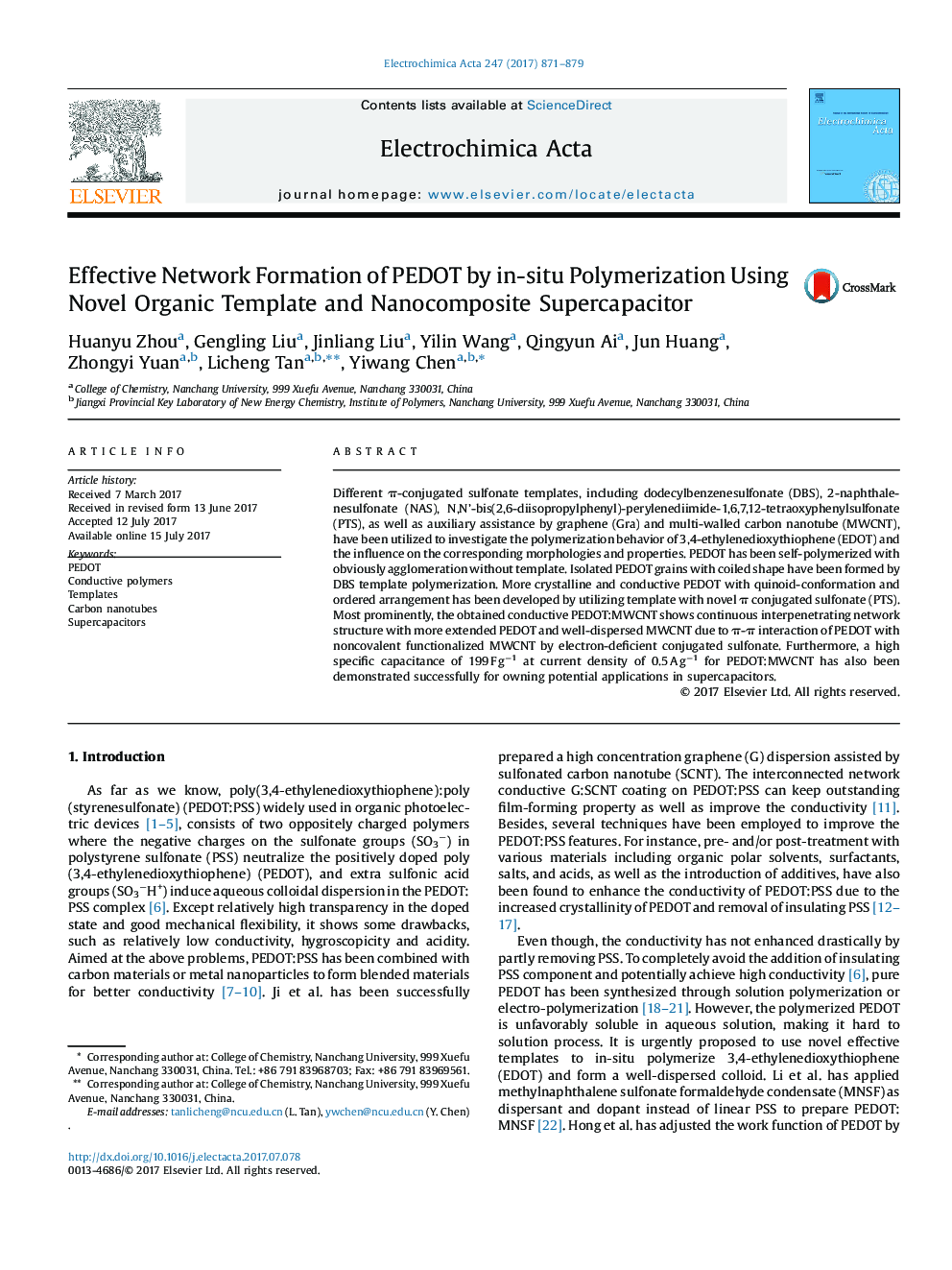| Article ID | Journal | Published Year | Pages | File Type |
|---|---|---|---|---|
| 6471137 | Electrochimica Acta | 2017 | 9 Pages |
â¢The novel Ï conjugated sulfonate is utilized to polymerize PEDOT as template.â¢Crystalline and conductive PEDOT with quinoid-conformation and effective network is developed.â¢The continuous interpenetrating network is further formed by auxiliary Ï-Ï interaction of MWCNT.â¢The nanocomposites are demonstrated for owning potential applications in supercapacitors.
Different Ï-conjugated sulfonate templates, including dodecylbenzenesulfonate (DBS), 2-naphthalenesulfonate (NAS), N,N'-bis(2,6-diisopropylphenyl)-perylenediimide-1,6,7,12-tetraoxyphenylsulfonate (PTS), as well as auxiliary assistance by graphene (Gra) and multi-walled carbon nanotube (MWCNT), have been utilized to investigate the polymerization behavior of 3,4-ethylenedioxythiophene (EDOT) and the influence on the corresponding morphologies and properties. PEDOT has been self-polymerized with obviously agglomeration without template. Isolated PEDOT grains with coiled shape have been formed by DBS template polymerization. More crystalline and conductive PEDOT with quinoid-conformation and ordered arrangement has been developed by utilizing template with novel Ï conjugated sulfonate (PTS). Most prominently, the obtained conductive PEDOT:MWCNT shows continuous interpenetrating network structure with more extended PEDOT and well-dispersed MWCNT due to Ï-Ï interaction of PEDOT with noncovalent functionalized MWCNT by electron-deficient conjugated sulfonate. Furthermore, a high specific capacitance of 199Â FÂ gâ1 at current density of 0.5Â AÂ gâ1 for PEDOT:MWCNT has also been demonstrated successfully for owning potential applications in supercapacitors.
Graphical abstractDownload high-res image (88KB)Download full-size image
